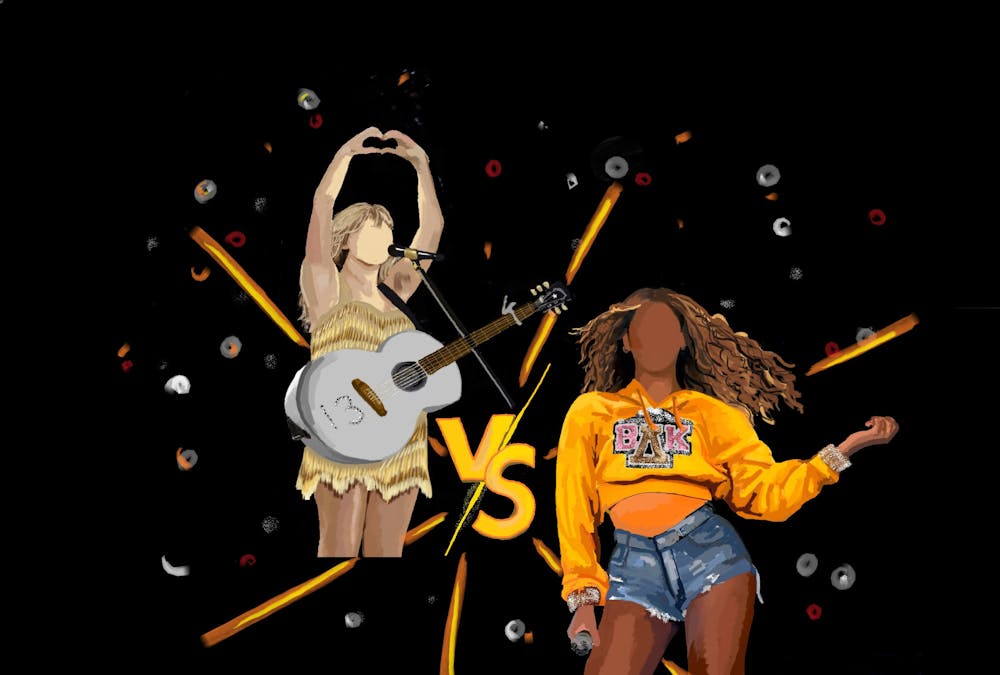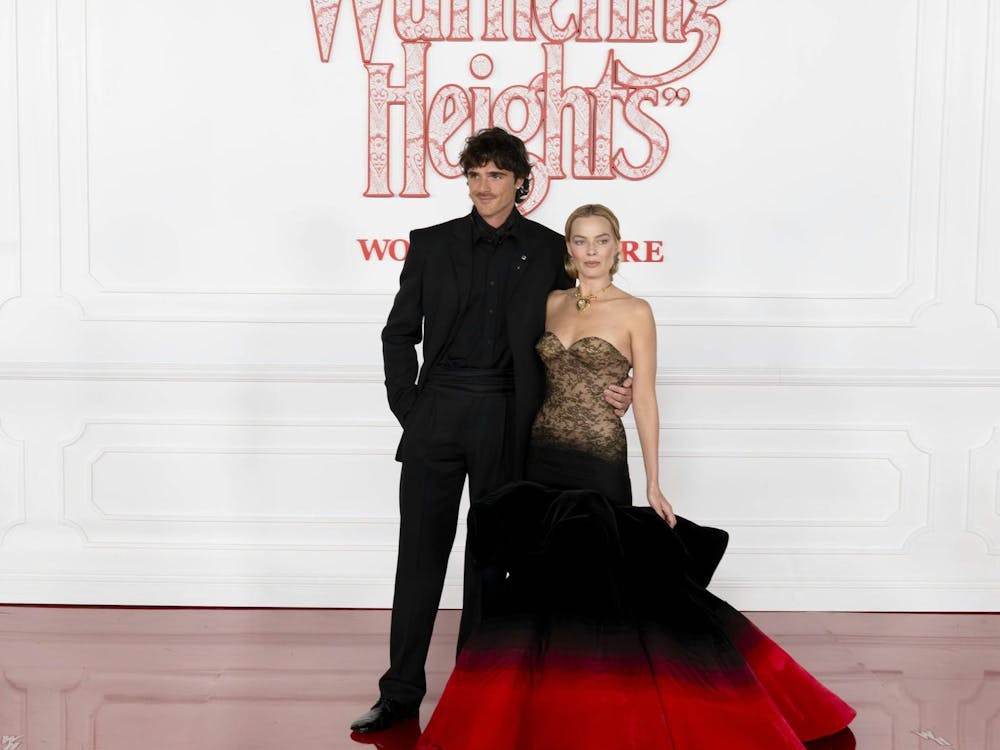This past summer was momentous for music, with two of the generation's most successful entertainers — Beyoncé and Taylor Swift — going on historic, record-breaking tours. From the silver ballroom glitz of Beyonce’s “Renaissance World Tour” to the colorful and glittery nostalgia of Swift’s “The Eras Tour,” timelines across all social media platforms have been plastered with coverage of these two one-of-a-kind productions for months.
While this coverage started as positive, it has turned sour in the past weeks, with a debate being sparked by super fans and casual listeners alike on which artist has the better tour. The conversation spread like wildfire, quickly pivoting into a much bigger debate on which woman is the better artist overall.
“Beyoncé's discography is so much better than [Taylor Swift’s],” one Twitter user wrote to refute the claims that Swift outdoes Beyoncé. “There's hardly any variety in Taylor Swift's music. It seemed like I was listening to a very long and bland song.”
Another user on the platform wrote in defense of Swift, bringing numbers into the conversation.
“It’s so funny how Beyoncé fans try so desperately to convince themselves and others that Taylor Swift has no versatility,” the Tweet read. “Mind you, Taylor has won 3 [Artist of the Year] grammys… Beyoncé has 0 AOTY wins.”
Similar threads of back and forth can be found on other platforms like Instagram and TikTok, with pictures and videos of both tours being used as evidence to support both sides of the debate.
For third-year College student Samantha Liffert — a fan of both Taylor Swift and Beyoncé — this discourse has everything to do with gender.
“It’s because they’re women,” Liffert said. “We never compare men the same way we compare women in the music industry.”
According to Music Prof. Bonnie Gordon, the practice of pitting two female artists against each other is not a convention of the 21st century, but has been prevalent in the music industry since ancient times. Back in the 17th and 18th centuries it was pamphlet satirists and patrons, now it is media outlets and industry executives who inflate real — or sometimes even fictional — rivalries between female musicians for capital gain.
“There's this sort of thing in the performance world, there's capital in making Taylor Swift and Beyoncé a competition,” Gordon said. “It makes everybody richer. Not [the artists] necessarily, but everybody around them.”
Additionally, Gordon explained that the perpetuation of these rivalry narratives between female artists is also used as a way to control the successful women they involve.
“I think people don't like powerful women — it's a way to take them down, you can see this in politics and in literature,” Gordon said, explaining that the practice is rooted in misogyny. “I think there's always been these kinds of fears of female singers and female artists.”
Because “it’s no longer fashionable to slut shame,” Gordon said, you can make a woman seem unworthy of her success by painting her out to be greedy or pitting her against one of her female counterparts in a fight.
While this year it’s Swift and Beyoncé, many other influential and iconic female performers have been subjected to this same treatment. Duos like Whitney Houston and Mariah Carey, Britney Spears and Christina Aguilera, and Nicki Minaj and Cardi B are a few of the women in the past few decades who have been stacked up against each other in similar ways.
This pattern is so prominent in popular culture that Swift herself called it out in her 2019 song “You Need To Calm Down” in which she sings, “And we see you over there on the internet / Comparing all the girls who are killing it.”
When asked why this cycle continues — and is currently prospering in online spaces — Gordon said that popular culture’s sentiments on women have not progressed as much as many would like to think. In the music industry and beyond, the practice of bringing women down through comparison is a testament to society’s upholding of “traditional” gender ideals.
“I don't think we're above pitting women against each other,” Gordon said. “I don't think we're above straight-up misogyny.”
For musician and third-year College student Alexandra Kerr, this issue of sexism in the music industry is one she finds both concerning and personal.
Kerr said she has been aware of the Taylor Swift and Beyoncé comparisons since the infamous 2009 Video Music Awards debacle in which Kayne West interrupted Swift receiving the award for Best Female Video to say that it should have gone to Beyoncé. The constant comparison between the two is a hindrance not only to Swift and Beyonce, but all women in the industry, Kerr said.
“When the media starts to push a narrative of women competing against each other, it isolates both of the artists, putting pressure on them to be the so-called ‘best female artist’ or ‘most successful female summer tour,’” Kerr said, explaining that these parameters “limit what it means to be a successful woman in music.”
To Kerr, race also plays an important factor in this conversation. She said that you can’t adequately talk about the culture of pitting female artists against each other without addressing racial disparities.
“As a woman of color who wants to make music, I find that intersectionality to be [what] affects me the most,” Kerr said.
Women of color deal with both misogyny and racism when pitted against others, Kerr said, naming artists like Olivia Rodrigo as a recent example of this.
“Seeing her and Beyoncé — two successful women of color — being compared to Taylor Swift definitely shows me that there is something added for women of color,” Kerr said. “They have to defend themselves against people who think they’re either riding the coattails of other women’s successes, or coming up second best because of arbitrary ticket sales.”
While there is no clear solution for this issue, Kerr said that it is necessary to continue bringing it to light through discussion.
“I definitely think it’s important to have productive conversations about the media’s portrayal of women, and how there are disparities in the ways that we report on successes that men and women have,” Kerr said.







